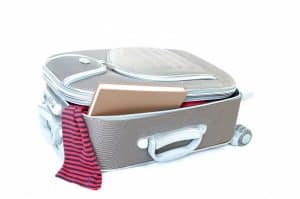Storage, Trust and Schedule
With so much information and insights into other people’s routines, it can be quite overwhelming. We have 24 hour access to millions of methods of doing things. It’s no wonder that many of us have become idea collectors. Well let me add 3 simple ways to manage this – Storage, Trust and Schedule.
Ideas, clippings, quotes, images that are collected with the idea that one day they will be used, implemented and made a part of who we are. Often we read an article and we think that we’ll implement the tips later on but never get to it. The writer collects character looks and landscape images to encourage production but actually it disguises their procrastination. It’s planning to travel to Italy in two years time and thinking that the ‘best restaurants to visit in Rome 2018’ article will be of use.
And I’m not immune either. Even as a Productivity and Time Management Coach I’ve had to declutter a lot. My collection of ideas has mainly been in digital form but I’ve seen clients with stacks and stacks of paper, carefully curated ideas for later reading and use, and those who have notebooks filled with notes, quotes, and inspiration just waiting for their time to be useful.
I always find it interesting uncovering the reasons behind why my clients are holding on to their particular information. And often three ways of dealing with that information overload come in to play:
- Storage
Rethinking the way the ideas are stored. This involves thinking through the importance of ideas and implementing a system for sorting them based on priorities. Like anything else, ideas need to have a home and limits need to be applied, expiration dates (every 2 months I will go through this file, revisit these notes and delete the ones that are no longer relevant) and the like. Evernote is often a good tool for storing long term ideas online. - Trust
Trust that you have already taken what you need from the information. If it’s an idea for writing, an amazing quote, a fact or inspiration, trust that it resonated with you for a reason and that you will be able to recall it when needed. Thinking through how easily the information is to get hold of again if you do need it in the future, also helps alleviate stress.
Working with the writer and his collection of inspiration material, previously mentioned, I asked him if he would remember to look at this particular file for an image or if he would just jump on Google again and find what fit the bill. He grinned and said that he’d probably just jump on Google – because it’d be faster. That helped immensely with cutting down on his collection as he saw the reality of his system. - Schedule
Make time for putting things in action. If you read something that you want to try, say an app, or a DIY hair treatment, or a Christmas idea, schedule it into your calendar to ensure that you will put it in action. This means that not only is it scheduled, so your brain can rest and forget about it, but also means that you can discard the physical version.
These three ways help to significantly reduce idea accumulation. Reducing the thought clutter throughout your life and home.
If you need help getting your paperwork and ideas in order, see how flor&order can help here. We also share handy tips and tricks on our Instagram page.








